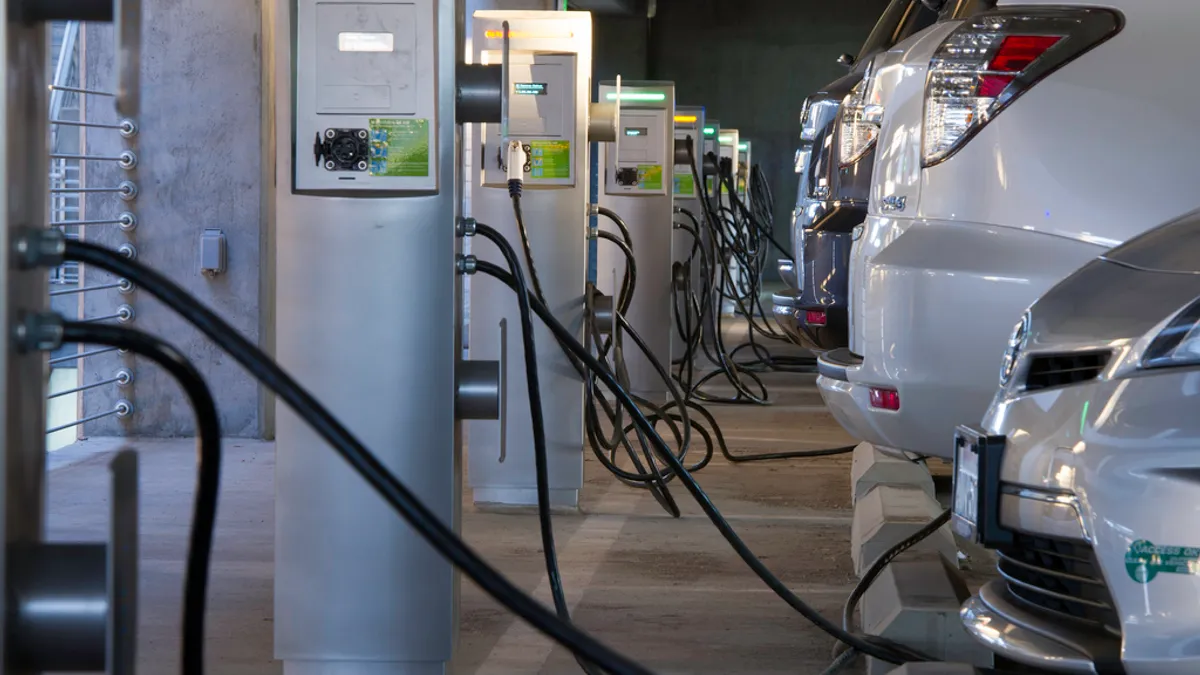Dive Brief:
- The Pennsylvania Public Utilities Commission (PUC) on Thursday approved tariff supplements for four FirstEnergy utilities that will clarify rules around third-party electric vehicle (EV) charging in an attempt to encourage development of charging infrastructure.
- The changes specify that charging at third-party owned charging stations "will not be considered resale of electricity" and the stations will be excluded from pricing requirements of the state's Public Utilities Code.
- The move comes in the wake of a recent report from the state's Department of Environmental Protection (DEP), which found that higher adoption of EVs could help the state reap $2.8 billion in benefits through decreased emissions and economic, environmental and public health impacts.
Dive Insight:
The state's current prohibition on the resale of electricity is mostly aimed at unscrupulous landlords, a PUC official told Utility Dive. But by having utilities clarify third-party rules, regulators are hoping to pull down one barrier to infrastructure development that the state had identified.
"It's a very technical thing, but from our perspective it really does clear the way for business looking to invest" in charging stations, said PUC press secretary Nils Hagen-Frederiksen.
The new tariff language addresses issues surrounding third-party EV charging stations and their exclusion from pricing requirements. The changes detail requirements for how and when owners and operators must notify utilities of their plans to develop stations.
The tariff supplements were approved unanimously by the commission for Metropolitan Edison, Pennsylvania Electric, Pennsylvania Power and West Penn Power. They are the first utilities to be considered under the PUC's EV charging infrastructure policy statement, which was adopted in November to provide "clarity and consistency" among utilities as well as encourage investment in EV infrastructure.
Earlier this month, the DEP unveiled a plan to boost EV adoption by encouraging utilities to invest in transportation electrification, establishing statewide sales goals and expanding an alternative fuel investment grants program for municipalities, businesses and organizations.
Pennsylvania has about 15,000 EVs registered out of roughly 8 million vehicles in the state. The DEP estimates an aggressive approach to boosting adoption could mean about 31% penetration by 2033.















